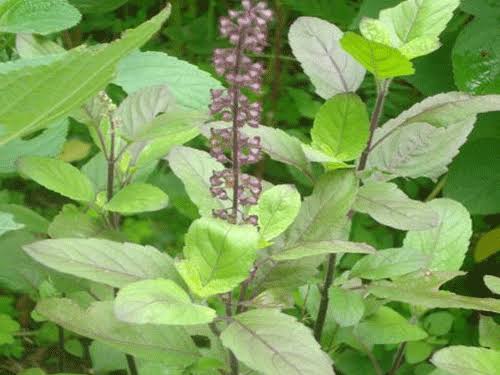What Indians knew since ages about Tulsi plant, now confirmed by Japan researchers?

Photo of Holy Tulsi
Indians knew the medicinal value of Holy Tulsi ( Basil plant ) since at least last 10000 years, if not more, Hindus Warship this plant and every home must have it.
Now a Japanese research team has announced the discovery of a substance in Holy Basil that inhibits the proliferation of the coronavirus, and researchers aim to develop a naturally occurring compound that can be used as a therapeutic agent.
Holy Basil is a type of herb that people often use even in Japan and most of South East Asia, for example when making the popular Thai dish Gapao rice.
The findings by the team led by Toshiyuki Hamada, associate professor at Kagoshima University’s Faculty of Science, were revealed in the Nov. 25 online issue of the Journal of Natural Medicines, a quarterly academic journal published by the Japanese Society of Pharmacognosy.
According to the announcement, Holy Basil contains a compound called Sulfoquinovosyl diacylglycerol (SQDG). This compound strongly inhibits the activity of a crucial enzyme for viral replication known as “main protease” in the coronavirus.
Furthermore, experiments using cultured cells confirmed the suppression of infection.
Hamada and his team started research in fiscal 2023 to develop therapeutic agents using agricultural products, and focused on pesticide-free basil grown in the town of Minamiosumi, Kagoshima Prefecture.
While there are already drugs to inhibit the SARS-CoV-2 main protease, utilizing natural substances may lead to the development of safer treatments.
As various virus strains have a common main protease, researchers say the therapeutic drug using SQDG could be effective against multiple strains of the coronavirus.
However, SQDG is said to have low penetration rates into cells. A vast amount of Holy Basil would be needed for practical application if used in its current form, and the team is working to address this challenge.
Hamada commented, “We have discovered the potential of developing therapeutic agents in a relatively familiar agricultural product.
This could also lead to new regional industries.”Well India’s Shri Ramdev is already having a well established Indian brand selling therapeutic medicine from agricultural products.




